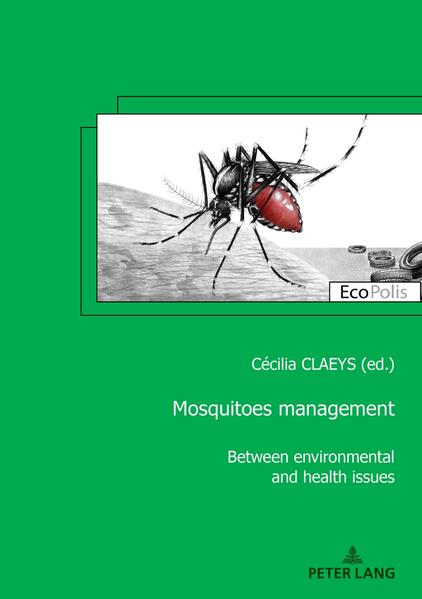
Zustellung: Mo, 16.06. - Mi, 18.06.
Versand in 4 Tagen
VersandkostenfreiBestellen & in Filiale abholen:
This book focuses on contemporary developments in mosquito control policies. Through case studies in Africa, the Indian Ocean, America and Europe, this interdisciplinary volume shows that relationships between human societies and mosquitoes are more deeply enmeshed than ever and call into question the old North/South, environment/health dualisms.
This edited volume focuses on contemporary developments in mosquito control policies. It is premised on the idea that, in view of the social and ecological changes of recent decades, effective management of vector mosquitoes calls for a break with the old North/South, environment/health dualisms. Increasing urbanization and climate change encourage the proliferation of vector mosquitoes and expand their range of distribution. Globalization and the accelerated flow of human beings, insect vectors and viruses are increasing epidemic risks.
In the North, populations are now exposed to emerging or re-emerging epidemic risks (dengue fever, chikungunya, zika, malaria, etc.). However, comfort-based mosquito control techniques designed predominantly to reduce a nuisance have proven ineffective against vector mosquitoes. In the South, social acceptance of large-scale insecticide spraying is waning. Ecological concerns are voiced with growing insistence, denouncing a cure that can be worse than the disease. Reliance on chemical control appears even less desirable as its effectiveness declines due to increasing insecticide resistance among mosquitoes. Meanwhile, genetic engineering is still in the trial and error phase and raises new ethical questions.
The changes studied here are socio-environmental. To understand them, this volume proposes a dialogue between sociology, geography, entomology, epidemiology and ecology based on several study areas in Africa, the Indian Ocean, America and Europe. These analyses show that the relationships between human societies and mosquitoes are more deeply enmeshed than ever, as if caught in a duel that is still all too often fatal.
Inhaltsverzeichnis
Cécilia Claeys : Introduction - Florence Fouque : Vector-Borne Diseases and human societies: some examples of relationships, evolutions and challenges - Mariam Otmani del Barrio : Social dimensions factored into mosquito-borne diseases, their prevention and control. From a global perspective to the Zika case in Latin America - Melinda Butterworth : Shifting socio-ecologies of dengue fever in the United States: Lessons from Florida, Texas, and Arizona - Eric Diboulo : Climate change and Malaria in Burkina Faso - Paolo Giardullo : Spreading mosquitoes: a media analysis of Italian national newspaper coverage of mosquito-borne diseases and related interventions - Cécilia Claeys : Comfort-based mosquito control and vector control in the context of socio-environmental change: French experience on both sides of the Atlantic - Marie Thiann-Bo Morel : The chikungunya outbreak in Reunion: epidemic or environmental crisis? - Cécilia Claeys, Valérie Bertaudière-Montes, Christine Robles*, Magali Deschamps-Cottin, Julie Cardi : Gardens, pesticides and mosquito-borne diseases: an interdisciplinary comparison between mainland France and the French Antilles - Christophe Boëte : Synthetic Biology and Malaria Control: Navigating between Biology and Social Science
Produktdetails
Erscheinungsdatum
09. Januar 2019
Sprache
englisch
Seitenanzahl
208
Reihe
EcoPolis
Herausgegeben von
Cécilia Claeys, Marc Mormont
Weitere Beteiligte
Cécilia Claeys
Verlag/Hersteller
Produktart
kartoniert
Abbildungen
21 Abb.
Gewicht
281 g
Größe (L/B/H)
13/149/210 mm
ISBN
9782807602410
Entdecken Sie mehr
Bewertungen
0 Bewertungen
Es wurden noch keine Bewertungen abgegeben. Schreiben Sie die erste Bewertung zu "Mosquitoes management" und helfen Sie damit anderen bei der Kaufentscheidung.









